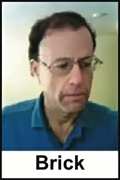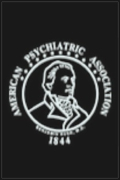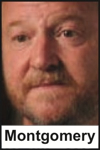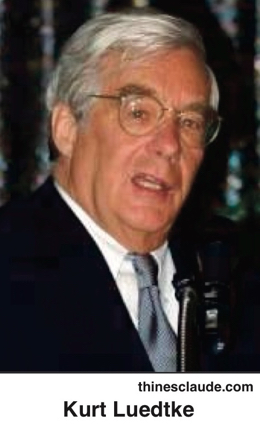Rascals case in brief
In the beginning, in 1989, more than 90 children at the Little Rascals Day Care Center in Edenton, North Carolina, accused a total of 20 adults with 429 instances of sexual abuse over a three-year period. It may have all begun with one parent’s complaint about punishment given her child.
Among the alleged perpetrators: the sheriff and mayor. But prosecutors would charge only Robin Byrum, Darlene Harris, Elizabeth “Betsy” Kelly, Robert “Bob” Kelly, Willard Scott Privott, Shelley Stone and Dawn Wilson – the Edenton 7.
Along with sodomy and beatings, allegations included a baby killed with a handgun, a child being hung upside down from a tree and being set on fire and countless other fantastic incidents involving spaceships, hot air balloons, pirate ships and trained sharks.
By the time prosecutors dropped the last charges in 1997, Little Rascals had become North Carolina’s longest and most costly criminal trial. Prosecutors kept defendants jailed in hopes at least one would turn against their supposed co-conspirators. Remarkably, none did. Another shameful record: Five defendants had to wait longer to face their accusers in court than anyone else in North Carolina history.
Between 1991 and 1997, Ofra Bikel produced three extraordinary episodes on the Little Rascals case for the PBS series “Frontline.” Although “Innocence Lost” did not deter prosecutors, it exposed their tactics and fostered nationwide skepticism and dismay.
With each passing year, the absurdity of the Little Rascals charges has become more obvious. But no admission of error has ever come from prosecutors, police, interviewers or parents. This site is devoted to the issues raised by this case.
On Facebook
Click for earlier Facebook posts archived on this site
Click to go to
Today’s random selection from the Little Rascals Day Care archives….
Click for earlier Facebook posts archived on this site
Click to go to
Today’s random selection from the Little Rascals Day Care archives….
The darkness that lurks behind Darkness to Light
Jan. 16, 2012
Darkness to Light is a Charleston-based nonprofit with the goal “End Child Abuse.” Since its founding in 2000, D2L claims to have trained adults in 48 states and 10 foreign countries in how to prevent, recognize and react to child sexual abuse. Among its allies: YMCAs.
Unfortunately, D2L is less than meticulous in associating itself with other organizations. This is a letter I sent D2L officials on Dec. 5:
Darkness to Light does a disservice to the public and to your cause when you include on your list of resources the Survivorship website.
 Survivorship’s board president is Neil Brick, who identifies himself as “the founder of S.M.A.R.T. (Stop Mind Control and Ritual Abuse Today) at http://ritualabuse.us. He is a survivor of ritual abuse and a survivor advocate. He works on developing supports for survivors and getting information out to the general public about ritual abuse. He runs yearly ritual abuse conferences on the east coast of the United States every year at http://ritualabuse.us/smart-conference. Links to his presentation transcripts and research papers are http://ritualabuse.us/smart/neil-brick.”
Survivorship’s board president is Neil Brick, who identifies himself as “the founder of S.M.A.R.T. (Stop Mind Control and Ritual Abuse Today) at http://ritualabuse.us. He is a survivor of ritual abuse and a survivor advocate. He works on developing supports for survivors and getting information out to the general public about ritual abuse. He runs yearly ritual abuse conferences on the east coast of the United States every year at http://ritualabuse.us/smart-conference. Links to his presentation transcripts and research papers are http://ritualabuse.us/smart/neil-brick.”
S.M.A.R.T. is perhaps the most prominent organization still insisting that numerous day-care providers in the 1980s and early 1990s subjected children to “satanic ritual abuse.” Although the day-care panic eventually waned and courts freed nearly all the unfortunate defendants, S.M.A.R.T. continues to see abuse in every one of these cases – from McMartin to Little Rascals to Fells Acres, etc.
Like Scientologists and Holocaust deniers, S.M.A.R.T. has been banned from editing Wikipedia entries. Neither should its disinformation campaign be given a platform by Darkness to Light.
Darkness to Light has yet to respond to that letter or to a Dec. 30 follow-up soliciting “a statement explaining why you continue to support this organization.” I’d be happy to publish such an explanation, but even happier to learn that D2L has cut its ties to the ritual abuse movement.
A real head-scratcher: Diagnosis or job description?
 Dec. 17, 2012
Dec. 17, 2012
“(They) are arrogant and self-centered, and feel privileged and entitled. They have a grandiose, exaggerated sense of self-importance and they are primarily motivated by self-serving goals. They seek power over others and will manipulate, exploit, deceive, con, or otherwise take advantage of others, in order to inflict harm or to achieve their goals. They are callous and have little empathy for others needs or feelings unless they coincide with their own. They show disregard for the rights, property, or safety of others and experience little or no remorse or guilt if they cause any harm or injury to others. They may act aggressively or sadistically toward others in pursuit of their personal agendas and appear to derive pleasure or satisfaction from humiliating, demeaning, dominating, or hurting others….”
The passage above, from the Diagnostic and Statistical Manual of Mental Disorders best describes
A. Psychopaths
B. Prosecutors of ritual-abuse day-care cases
C. Both A and B
Junior Chandler victimized by overreaching experts
 Jan. 31, 2012
Jan. 31, 2012
Expert vouching.
That odd little legalism is the crucial issue in Junior Chandler’s latest – and perhaps last – shot at justice. Durham attorney Mark Montgomery has just filed an appeal on Junior’s behalf in the N.C. Supreme Court.
In Junior’s 1987 trial in Buncombe County, the prosecution ran out no fewer than six expert witnesses, including three pediatricians.
Each expert testified that Junior’s alleged victims had in fact been sexually abused “as they described” – but none could cite definitive physical evidence on which they based their validation.
In the years since, higher courts have seen the reversible error of those ways. Expert vouching is now inadmissible in the absence of physical evidence “diagnostic of” – not just “consistent with” – sexual abuse.
The case against Junior was weak and weird on all fronts. No credible eyewitnesses or physical evidence. No storyline that made a lick of sense. (Although prosecutor Bill Hart must have liked the kidnapping-and-boat-ride scenario – he called on it again four years later in the Little Rascals trial.)
Only four children testified against Junior, accounting for less than 2 percent of the 1,407-page trial transcript. Some claimed to have been abused by… Pinocchio. And jurors never heard from those children on Junior’s bus who denied seeing abuse.
Just how important was expert vouching in imposing Junior’s two consecutive life sentences?
On all charges supported by expert vouching the jury found him guilty. On all charges not supported by expert vouching it found him not guilty.
What might’ve been: Nancy Lamb at the multiplex
 May 30, 2015
May 30, 2015
Ofra Bikel’s eight hours of “Innocence Lost” were surely powerful, but the narrowness of PBS’s audience limited their impact. What if the Little Rascals Day Care case had also inspired a major theatrical release? What if several million moviegoers had watched the dramatic nobody-dunnit even as the real-life Edenton Seven were languishing in jail or standing trial?
For a brief moment, that seemed possible.
Kurt Luedtke, screenwriter for the ’80s hits “Out of Africa” and “Absence of Malice,” was outraged after seeing the initial “Innocence Lost” in 1991. “You can’t hold people that long without presenting the evidence,” he told the Charlotte Observer.
Now retired and living in Michigan, Luedtke recalls his “indignation mounting and (thinking) I had to do something about the preposterousness of what was going on….”
Alas, his idea apparently made it no further than a preliminary meeting in New York with Bikel and “Frontline” founder David Fanning: “I can’t remember why we didn’t go forward; maybe I had another job.”











0 CommentsComment on Facebook